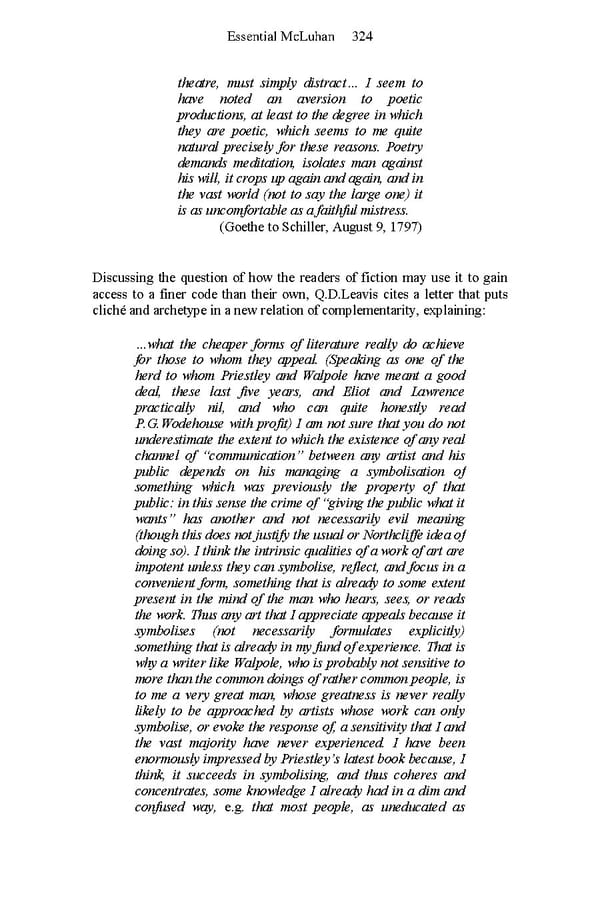Essential McLuhan 324 theatre, must simply distract… I seem to have noted an aversion to poetic productions, at least to the degree in which they are poetic, which seems to me quite natural precisely for these reasons. Poetry demands meditation, isolates man against his will, it crops up again and again, and in the vast world (not to say the large one) it is as uncomfortable as a faithful mistress. (Goethe to Schiller, August 9, 1797) Discussing the question of how the readers of fiction may use it to gain access to a finer code than their own, Q.D.Leavis cites a letter that puts cliché and archetype in a new relation of complementarity, explaining: …what the cheaper forms of literature really do achieve for those to whom they appeal. (Speaking as one of the herd to whom Priestley and Walpole have meant a good deal, these last five years, and Eliot and Lawrence practically nil, and who can quite honestly read P.G.Wodehouse with profit) I am not sure that you do not underestimate the extent to which the existence of any real channel of “communication” between any artist and his public depends on his managing a symbolisation of something which was previously the property of that public: in this sense the crime of “giving the public what it wants” has another and not necessarily evil meaning (though this does not justify the usual or Northcliffe idea of doing so). I think the intrinsic qualities of a work of art are impotent unless they can symbolise, reflect, and focus in a convenient form, something that is already to some extent present in the mind of the man who hears, sees, or reads the work. Thus any art that I appreciate appeals because it symbolises (not necessarily formulates explicitly) something that is already in my fund of experience. That is why a writer like Walpole, who is probably not sensitive to more than the common doings of rather common people, is to me a very great man, whose greatness is never really likely to be approached by artists whose work can only symbolise, or evoke the response of, a sensitivity that I and the vast majority have never experienced. I have been enormously impressed by Priestley’s latest book because, I think, it succeeds in symbolising, and thus coheres and concentrates, some knowledge I already had in a dim and confused way, e.g. that most people, as uneducated as
 Essential McLuhan Page 330 Page 332
Essential McLuhan Page 330 Page 332